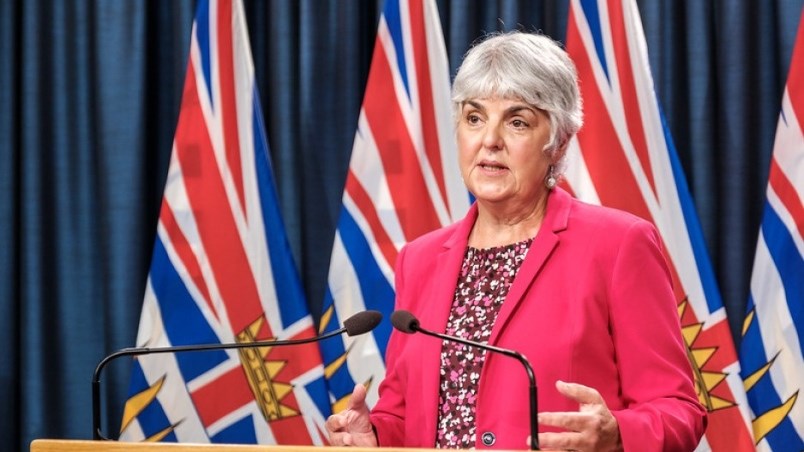B.C. Finance Minister Carole James gave a public accounts update this morning (Aug. 31) and it wasn’t pretty.
Not surprisingly, the COVID-19 pandemic that shut down much of B.C.’s economy - reducing tax revenue for the province, creating massive unemployment and prompting billions in emergency aid spending - has left James’ provincial accounts looking like the proverbial child’s math homework eaten by the family dog.
It could be worse, however, as James pointed out that B.C. entered the pandemic in a strong economic position. B.C. had higher than expected economic growth up until the final quarter of the 2019-20 fiscal year - about 2.8 per cent higher - and it had the lowest unemployment rate in the country.
The economy then started falling off a cliff in the final quarter of the fiscal year.
James, who was diagnosed Parkinson’s disease earlier this year and will not seek re-election, has been dealing with the kind of budgetary ravages that might make the opposition secretly glad it’s in opposition.
B.C's economy was performing well for the first three quarters of the 2019-2020 fiscal year. It was the final quarter of the 2019-20 fiscal year when the pandemic hit.
As a result, a fiscal year that was originally projected to end with a modest surplus of $227 million has ended with a $321 million deficit.
Increased spending to deal with the pandemic, lower tax revenue and a $298-million loss on ICBC’s books were the main factors in pushing surplus into deficit.
"͞Despite the impacts of COVID-19, I am encouraged that B.C. continues to show positive signs, including improving employment numbers, robust capital spending and the best debt affordability in Canada.,” James said in a press release.
"͞B.C.isn't alone in facing these challenges, but we are in a strong position to weather them. The investments we made in 2019-20, such as eliminating MSP premiums and investing in child care and housing, will make life more affordable and support people through COVID-19 as the province develops a strong economic recovery plan.”
Overall, taxation revenue to the province was down $735 million, and health care spending related to the pandemic spiked.
The province received $68 million from federal government’s Canada Health Transfer, and it had forecast allowances and contingency funding built into the budget, which helped mitigate some of the impacts.
Highlights of impacts related to pandemic:
- $397 million decrease in personal income tax
- $171 million decrease in property taxes
- $298 million loss from ICBC
- $46 million increased health care spending related to pandemic
Some of the negative impacts on ICBC was from a sharp downturn in stock markets, which would have decreased ICBC's investment earnings.
It may be that fewer people on the roads, and fewer accidents, shows up in a positive way on ICBC's books for the first half of 2020.
James' update only covers a fiscal year ending in March. Impacts on the 2020-21 budget are expected to be even worse, especially the first half of 2020.
"We're going to have deficits - there's no question - just as every jurisdiction is going to," James said of the 2020-21 budget and beyond.
In her presentation Monday, James highlighted some of the initiatives her government had undertaken prior to the pandemic that would have helped ordinary British Columbians - the elimination of MSP premiums, for example, which James called "one of the largest tax cuts in B.C.'s history."
For many employers, however, it wasn't a tax cut but a tax shift, since they now have to pay a new health care payroll tax.
However, the province provided a number of tax breaks for business, including a 25 per cent cut to school property taxes for 2020. The province also deferred a number of tax increases, including a carbon tax hike, that was to take effect in April.
Read more from Business In Vancouver



